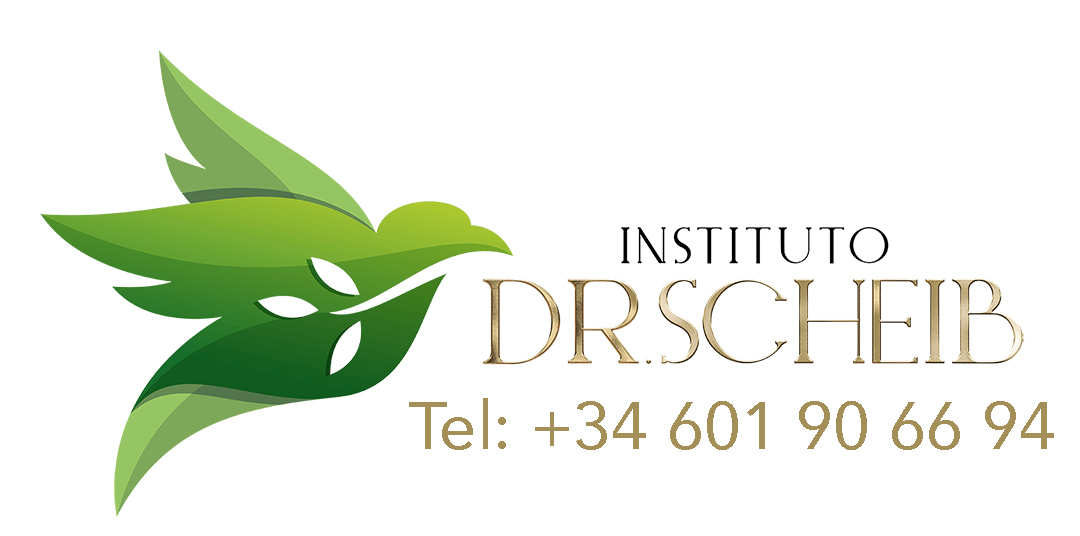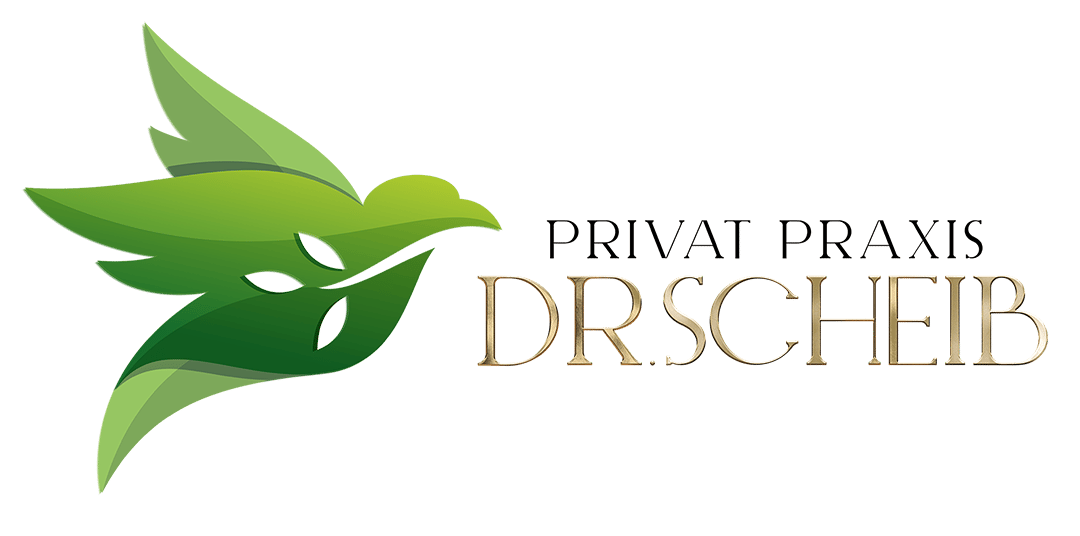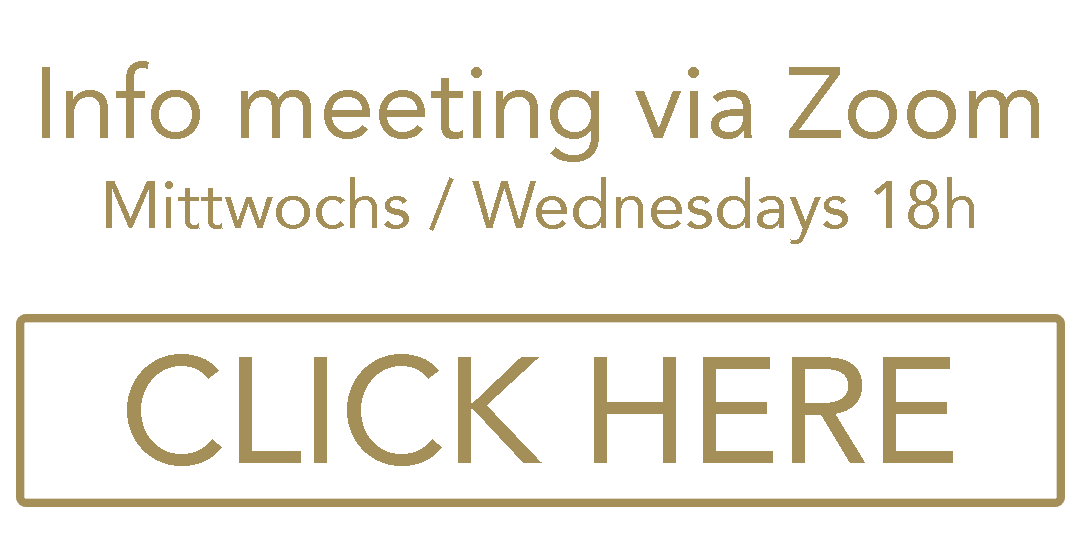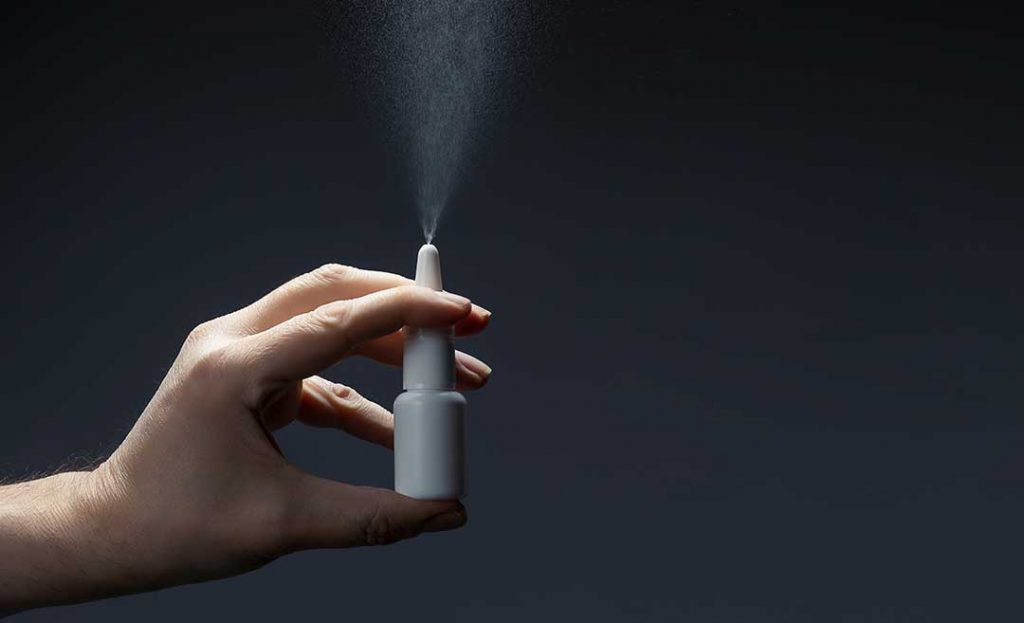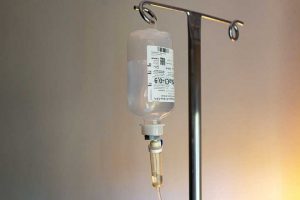A Comprehensive Guide to Combating Mental Health Challenges
Imagine feeling like you’re trapped in a dark tunnel with no end in sight. Every day feels like a battle against your own mind, and traditional treatments seem to offer little relief. This is the reality for many individuals struggling with mental health disorders such as depression, obsessive-compulsive disorder (OCD), post-traumatic stress disorder (PTSD), and chronic pain, suicidality and addiction. However, a glimmer of hope has emerged in the form of ketamine therapy for a variety of mental health conditions. Offering rapid relief and hope to individuals who have struggled with conventional treatments ketamine infusions are a groundbreaking treatment that is changing lives across GB.
Understanding Ketamine Therapy:
Ketamine, originally developed as an anesthetic, has gained recognition for its rapid and profound antidepressant effects. Unlike traditional antidepressants that can take weeks to months to alleviate symptoms, ketamine works within hours or days, offering immediate relief to those in distress. According to studies cited by the National Institute of Mental Health (NIMH), ketamine has shown remarkable success rates, with up to 70% of patients experiencing significant improvement in their symptoms after just one infusion.
Ketamine infusions involve the administration of ketamine, a dissociative anesthetic, via intravenous infusion. Ketamine works by modulating glutamate, a neurotransmitter involved in mood regulation and pain perception. Research has shown that ketamine can provide rapid relief from symptoms of depression, anxiety, PTSD, OCD, chronic pain, addiction and other mental health conditions, often within hours or days of treatment.
While ketamine infusions can offer rapid relief, the effects are often temporary without additional support and intervention. Many treatment centers in GB and in the US offer Ketamine therapy alone, which may not address the underlying psychological factors contributing to mental health conditions, potentially leading to relapse or recurrence of symptoms over time. Additionally, ketamine infusions carry potential risks and side effects, including dissociation, elevated blood pressure, and bladder issues, which must be carefully monitored by qualified healthcare professionals.
Combining Therapies for Enhanced Results
Ketamine therapy isn’t just about receiving infusions; it’s a holistic approach to mental wellness that combines cutting-edge treatments like repetitive transcranial magnetic stimulation (rTMS), psychotherapy, neurofeedback, and hypnosis. In this article, we’ll delve into the world of ketamine therapy in GB, exploring its benefits, effectiveness, and why a combination of therapies might be the key to unlocking a brighter future.
In GB, ketamine therapy is often offered as a standalone treatment, with limited integration of other therapeutic modalities. While ketamine infusions alone can provide temporary relief, the lack of comprehensive support may limit long-term outcomes for individuals with complex mental health needs.
Dr. Scheib, a leading expert in the field of ketamine therapy, emphasizes the importance of personalized treatment plans tailored to each individual’s needs.
“At our clinic, we understand that mental health is complex and multifaceted,” says Dr. Scheib. “That’s why we offer a comprehensive approach that goes beyond ketamine infusions alone.”
Combining ketamine therapy with other evidence-based therapies, such as psychotherapy, repetitive transcranial magnetic stimulation (rTMS), neurofeedback, and hypnosis, offers a comprehensive approach to mental wellness and can lead to even greater outcomes.
Each of these therapies targets different aspects of mental health, working synergistically to address the root causes of symptoms and promote long-term recovery.
Repetitive transcranial magnetic stimulation:
rTMS is a non-invasive procedure that uses magnetic fields to stimulate nerve cells in the brain using magnetic fields. It has been shown to complement the effects of ketamine by targeting specific areas associated with mood regulation. It is commonly used as a treatment for various psychiatric and neurological conditions. Here’s how rTMS works:
Stimulation: During an rTMS session, a device called a TMS coil is placed on the scalp, targeting specific regions of the brain associated with the condition being treated. The coil delivers rapid and repetitive magnetic pulses, which pass through the skull and stimulate nerve cells in the targeted area.
Brain Activation: The magnetic pulses induce small electrical currents in the brain, leading to the depolarization of neurons and the release of neurotransmitters. This activation of brain cells can modulate neural activity in the targeted area and influence broader brain networks involved in mood regulation, pain perception, and cognitive function.
Treatment Sessions: rTMS treatment typically involves multiple sessions over several weeks. The frequency, intensity, and duration of the sessions may vary depending on the specific condition being treated and individual response to treatment.
Therapeutic Effects: The therapeutic effects of rTMS are thought to result from the modulation of brain activity and the normalization of abnormal neural circuits associated with psychiatric and neurological disorders. Research suggests that rTMS can induce long-lasting changes in brain function, leading to improvements in symptoms and overall functioning.
rTMS has been approved by regulatory authorities in many countries, including the United States and the European Union, for the treatment of various conditions, including:
- Major depressive disorder (MDD)
- Treatment-resistant depression (TRD)
- Bipolar disorder
- Obsessive-compulsive disorder (OCD)
- Schizophrenia
- Chronic pain syndromes, such as fibromyalgia and neuropathic pain
Overall, rTMS offers a safe and effective treatment option for individuals who have not responded to traditional therapies or who may prefer non-invasive alternatives to medication. It is typically well-tolerated, with minimal side effects, and can be performed in an outpatient setting under the supervision of trained healthcare professionals.
Psychotherapy:
Psychotherapy is a treatment approach aimed at addressing psychological problems and emotional difficulties through talk and other therapeutic techniques. It is based on the idea that improving understanding and processing of thoughts, feelings, and behaviors can help alleviate psychological distress and promote overall well-being. It helps individuals develop coping strategies, challenge negative thought patterns, and explore underlying emotional issues.
There are various approaches and techniques in psychotherapy, applied by qualified psychotherapists depending on the needs and goals of the individual patient. Some of the most common forms of psychotherapy include:
Cognitive Behavioral Therapy (CBT): This approach focuses on identifying and changing dysfunctional thinking and behavior patterns to cope with psychological problems. It often involves homework and practical exercises to learn new coping strategies.
Psychoanalysis and Psychodynamic Therapy: These forms of therapy aim to explore deeper unconscious conflicts and patterns influencing behavior and emotions. They are based on the theories of Freud and other psychoanalysts and often involve regular conversations between therapist and patient.
Humanistic Therapies: These include approaches such as Carl Rogers’ Person-Centered Therapy, where the therapist adopts a supportive, non-directive approach and focuses on helping the patient discover and utilize their own resources.
Family Therapy and Couples Therapy: These forms of psychotherapy focus on the relationships and interactions within families or couples, aiming to improve communication patterns, resolve conflicts, and strengthen relationships.
Integrative Therapy: Some therapists combine elements of different therapy approaches to develop a tailored treatment for their patients. This may involve a broader range of interventions and techniques to address individual needs and goals.
Psychotherapy can help address a variety of mental health problems and emotional challenges, including depression, anxiety, trauma, addiction, eating disorders, and personality disorders. It provides a safe and supportive space to explore issues, build self-awareness, and develop healthy coping mechanisms. It is important to note that psychotherapy is often used as part of a broader treatment plan, which may also include medication, self-help strategies, and other interventions.
Neurofeedback:
Neurofeedback, also known as EEG biofeedback or neurotherapy, is a non-invasive technique that aims to train the brain to regulate its electrical activity more effectively. Neurofeedback training measures brainwave activity, can enhance self-regulation and improve overall brain function. It utilizes real-time feedback of brainwave patterns to teach self-regulation of brain function. Here’s how neurofeedback works:
Brainwave Monitoring: During a neurofeedback session, electrodes are placed on the scalp to measure the brain’s electrical activity, known as brainwaves. This is typically done using an electroencephalogram (EEG) machine.
Feedback Mechanism: The EEG machine processes the brainwave signals and provides real-time feedback to the individual, often in the form of auditory or visual cues. For example, a person might hear a tone or see a visual display that changes based on their brainwave activity.
Learning and Training: Through this feedback mechanism, individuals learn to recognize and modify their brainwave patterns. They are guided to produce specific brainwave patterns associated with improved cognitive function, emotional regulation, or symptom relief.
Reinforcement: Positive reinforcement techniques, such as rewards or encouragement, are often used to reinforce desired brainwave patterns. Over time, the brain learns to produce these patterns more consistently and efficiently.
Neuroplasticity: Neurofeedback harnesses the brain’s ability to reorganize and adapt its structure and function, known as neuroplasticity. By repeatedly practicing desired brainwave patterns, neural networks can strengthen, leading to lasting changes in brain function and behavior.
Overall, neurofeedback offers a safe and non-invasive way to train the brain and promote optimal functioning. With proper guidance and support from trained professionals, individuals can experience improvements in their symptoms and quality of life.
Additionally, hypnosis can be used to address subconscious barriers and facilitate positive behavioral changes.
“At our clinic, we believe in empowering our patients with a toolbox of therapeutic modalities,” explains Dr. Scheib. “By combining ketamine therapy with other treatments, we can address the root causes of mental illness and provide lasting relief.”
Portable Neurofeedback
Neurofeedback training where and when YOU want
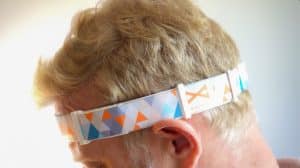
Brain Bit headband
Compact, portable, and user-friendly EEG device BUY: 462,93 € | RENT: 62,00 € / month The Brain Bit headband is an easy-to-use portable neurofeedback device. Like all neurofeedback devices, it
Continue reading →
Neurofeedback Baseball Cap
Compact, portable, and user-friendly EEG device BUY: 370,16 € | RENT: 55,00 € / month A baseball cap with Сallibri sensor that allows you to monitor brain activity. It is
Continue reading →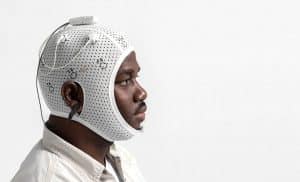
Brain Bit Flex Cap
Compact, portable, and user-friendly EEG device BUY: 695,79 € | RENT: 92,00 € / month Compact, portable, and user-friendly EEG device BrainBit Flex is a 4-channel consumer EEG device with
Continue reading →Realizing the Potential of Ketamine Therapy:
The impact of ketamine therapy extends far beyond depression. Research suggests that it may also be beneficial for conditions such as anxiety disorders, PTSD, OCD, and chronic pain. Furthermore, ketamine has shown promise in treating suicidal ideation, offering hope to those struggling with thoughts of self-harm.
As the demand for ketamine therapy continues to grow, it’s essential to prioritize safety and ethical practices. Qualified healthcare professionals, such as Dr. Scheib and his team, adhere to strict guidelines to ensure patient well-being and treatment efficacy.
In conclusion, ketamine therapy represents a beacon of hope for individuals battling mental health challenges in GB. By embracing a holistic approach that combines ketamine infusions with other evidence-based therapies, we can rewrite the narrative of mental illness and pave the way for a brighter tomorrow. So, why wait any longer to take the first step towards healing?
The power of ketamine therapy lies not only in its ability to provide rapid relief but also in its potential to transform lives. By integrating various therapeutic modalities, we can offer a comprehensive solution to mental health struggles. Are you ready to embark on a journey towards wellness?
Treatment in GB vs. Mallorca:
As you consider your options for mental health treatment, it’s essential to recognize the unique advantages that ketamine therapy at our treatment center in Mallorca, under the guidance of Dr. Scheib, can offer compared to ketamine infusions in GB.
Dr. Scheib’s clinic in Mallorca offers an integrated approach to ketamine therapy, combining infusions with psychotherapy, rTMS, neurofeedback, hypnosis, and other evidence-based therapies. Dr. Scheib and his team provide personalized treatment plans tailored to each individual’s needs, addressing both the psychological and physiological factors contributing to their symptoms. This holistic approach has proven successful in treating patients with severe mental and physical problems, including depression, PTSD, chronic pain, and more.
First and foremost, our center in Mallorca provides a serene and tranquil environment that fosters healing and relaxation. Nestled amidst the breathtaking landscapes of the Mediterranean, our facility offers a retreat-like setting away from the stresses of everyday life. This peaceful environment allows our patients to immerse themselves fully in their healing journey, free from distractions and interruptions.
Furthermore, our treatment center boasts state-of-the-art facilities and cutting-edge technology, ensuring that you receive the highest quality care available. Dr. Scheib, renowned for his expertise in ketamine therapy and holistic mental health treatments, leads our team of compassionate professionals. With years of experience and a commitment to personalized care, Dr. Scheib and his team are dedicated to guiding you towards optimal mental wellness.
Moreover, undergoing treatment in Mallorca offers the opportunity for a transformative experience beyond the confines of traditional clinical settings. Our integrative approach combines ketamine therapy with other evidence-based treatments, providing a comprehensive solution tailored to your individual needs. Whether you’re seeking relief from depression, PTSD, chronic pain, or other mental health challenges, our team is here to support you every step of the way.
Ultimately, choosing ketamine therapy at our treatment center in Mallorca means embarking on a journey of healing and self-discovery in a setting that prioritizes your well-being. With Dr. Scheib’s expertise and our dedication to holistic care, you can trust that you’re in capable hands.
In conclusion, while ketamine infusions alone can offer rapid relief from symptoms, their efficacy may be enhanced when combined with other evidence-based therapies. By addressing the multifaceted nature of mental health conditions and targeting both psychological and physiological factors, combination treatments provide a more comprehensive approach to healing. If you or a loved one is considering ketamine therapy, consult with us to explore integrative treatment options tailored to your individual needs. Why settle for ordinary when you can experience extraordinary healing in Mallorca? Contact us today to learn more about how ketamine therapy with Dr. Scheib can help you reclaim your life and embrace a brighter future.
Combining different treatment options for a comprehensive approach to depression management
Every individual is unique, and there is no one-size-fits-all approach to treating depression. We always recommend a combination of different treatment options for a comprehensive approach to depression management. This may involve a combination of ketamine infusions, intensive psychotherapy, ketamine assisted psychotherapy, rTMS, Neurostimulation methods, lifestyle changes, and alternative approaches.
In recent years, repetitive transcranial magnetic stimulation (rTMS) has proven to be particularly effective for treating depression. In this process, the part of the brain that is less active in depression is activated by repeated, targeted stimulation with a strong, pulsed magnetic field.By combining Ketamine IV therapy, magnetic stimulation and intensive psychotherapy, we are able to achieve a significant improvement in depression in over 80% of our patients after less than one week. After two weeks of daily treatment, the effect is maintained for years in most patients.
Working closely with our specialists, we develop a personalized treatment plan that addresses your specific needs and goals. Our therapy usually takes 2 – 3 weeks of intensive treatment to achieve long-lasting results.
Regular communication and follow-up appointments to monitor your progress can be arranged online or in person if you should feel the necessity.
Do you have
Questions?
MON-FRI 09:00 - 18:30
Benefits of ketamine therapy for mental health
Ketamine therapy has shown tremendous potential in the treatment of various mental health conditions. Here are some of the key benefits associated with this innovative treatment:
### Ketamine therapy for treatment-resistant depression
Treatment-resistant depression is a challenging condition that affects millions of people worldwide. It is characterized by chronic feelings of sadness, hopelessness, and a lack of interest in previously enjoyed activities. Conventional antidepressant medications and psychotherapy may not always be effective in alleviating the symptoms of treatment-resistant depression. However, ketamine therapy offers a glimmer of hope for individuals who have been struggling to find relief.
Research has shown that ketamine therapy can rapidly improve depressive symptoms in individuals with treatment-resistant depression. In some cases, the effects of a single ketamine infusion can last for several weeks, providing much-needed respite from the debilitating symptoms of depression. This rapid and sustained response to ketamine therapy has been described as a breakthrough in the field of psychiatry and has the potential to revolutionize the treatment of depression.
### Ketamine therapy for anxiety disorders
Anxiety disorders, such as generalized anxiety disorder (GAD), social anxiety disorder, and panic disorder, can significantly impact a person’s daily life and overall well-being. While traditional treatments, such as selective serotonin reuptake inhibitors (SSRIs) and cognitive-behavioral therapy (CBT), are commonly used to manage anxiety disorders, not all individuals respond adequately to these interventions.
Ketamine therapy has emerged as a promising alternative for individuals with anxiety disorders that have been resistant to conventional treatments. Studies have shown that ketamine can rapidly reduce anxiety symptoms, providing relief for individuals who have been living with excessive worry, panic attacks, and social anxiety. The fast-acting nature of ketamine therapy makes it particularly beneficial for individuals who require immediate relief or who have not responded well to other treatment options.
### Ketamine therapy for post-traumatic stress disorder (PTSD)
Post-traumatic stress disorder (PTSD) is a serious mental health condition that can develop after experiencing or witnessing a traumatic event. Individuals with PTSD often struggle with intrusive thoughts, nightmares, hypervigilance, and avoidance behaviors. While there are evidence-based treatments available for PTSD, such as trauma-focused therapy, not all individuals respond adequately to these interventions.
Ketamine therapy has shown promise in the treatment of PTSD, particularly if combined with brain-stimulation techniques (rTMS and neurofeedback) and EMDR. Research has indicated that ketamine can help to reduce the severity of PTSD symptoms and improve overall functioning. The rapid relief provided by ketamine therapy can be particularly beneficial for individuals who are in crisis or who are struggling with debilitating symptoms that impact their quality of life.
### Ketamine therapy for addiction
Ketamine is a game changer in addiction treatment. Recent studies show that addiction memory can apparently be overwritten with ketamine infusions and behavioral therapy or even hypnosis. It is effective the treatment of alcohol-, cocaine- and opiate abuse disorder. Month-long treatments in special addiction clinics are therefore usually no longer necessary. Recent studies also show efficacy for non-substance addictive behaviors and eating disorders. However, always within the framework of an overall psychotherapeutic concept. There is also the fact that withdrawal is often followed by severe depression, which is hardly treatable with other methods, but usually responds well to ketamine. Sometimes several ketamine infusions alone succeed in overwriting the addiction memory.
Other potential benefits of ketamine therapy
In addition to its effectiveness in treating depression, anxiety disorders, and PTSD, ketamine therapy has shown potential in addressing other mental health conditions and symptoms. Some of the conditions and symptoms that may benefit from ketamine therapy include:
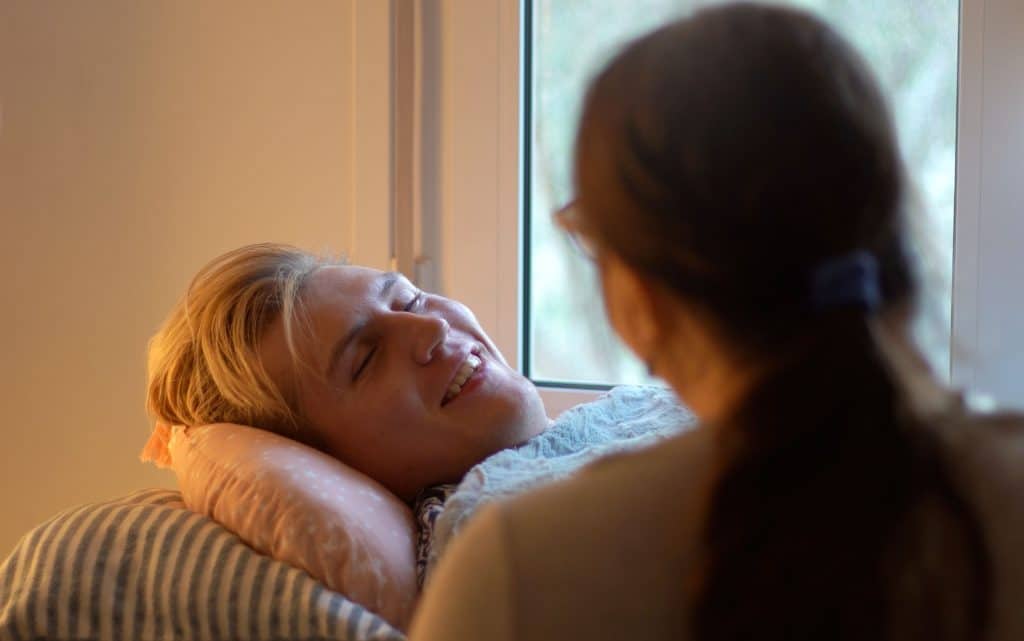
– Bipolar disorder: Ketamine therapy may help to alleviate depressive symptoms in individuals with bipolar disorder, particularly during depressive episodes.
– Obsessive-compulsive disorder (OCD): Research suggests that ketamine therapy may have a positive impact on OCD symptoms, reducing the severity and frequency of intrusive thoughts and compulsive behaviors.
– Chronic pain: Ketamine has long been used as an anesthetic and analgesic in the medical field. Ketamine therapy may offer relief for individuals with chronic pain conditions, such as fibromyalgia, neuropathic pain, and complex regional pain syndrome (CRPS).
Ketamine therapy shows promise in these areas, more research is conducted to fully understand its efficacy. As with any medical treatment, it is crucial to consult with a qualified healthcare professional to determine if ketamine therapy is suitable for your specific needs.
What to expect during a ketamine therapy session
During a ketamine IV (intravenous) session, individuals can expect a unique and potentially transformative experience. Overall, a ketamine IV session can be a profound and potentially life-changing experience for individuals seeking relief from conditions such as depression, anxiety, PTSD, and chronic pain. It offers a unique opportunity for introspection, healing, and personal growth under the guidance of trained medical professionals.
Here’s what typically occurs during a ketamine IV session:
Preparation: Before the session begins, the healthcare provider will conduct a thorough assessment to ensure that ketamine therapy is appropriate for the individual. This may include reviewing medical history, current medications, and discussing any concerns or questions the individual may have. The healthcare provider will also explain the procedure and what to expect during the session.
Setting: Ketamine IV sessions often take place in a comfortable and soothing environment, such as a clinic or treatment center. The room may be equipped with reclining chairs or beds, soft lighting, and calming music to enhance relaxation.
Administration: Once the individual is comfortable and prepared, the healthcare provider will administer the ketamine infusion intravenously. The dosage and duration of the infusion will vary depending on factors such as the individual’s weight, medical history, and treatment goals. The infusion is typically delivered slowly over a period of 40 minutes to several hours.
Monitoring: Throughout the infusion, the individual’s vital signs, including heart rate, blood pressure, and oxygen levels, will be monitored closely by trained medical staff. This ensures the individual’s safety and allows for prompt intervention if any adverse reactions occur.

Experience: As the ketamine enters the bloodstream and crosses the blood-brain barrier, individuals may begin to experience its effects. These effects can vary widely from person to person but often include feelings of relaxation, dissociation, and altered perception of time and space. Some individuals may also experience vivid imagery, changes in sensory perception, or a sense of emotional release.
Integration: After the infusion is complete, individuals are typically encouraged to rest and relax for a period of time while the effects of ketamine gradually dissipate. Many clinics offer post-infusion integration sessions where individuals can discuss their experience, process any emotions that arose during the session, and receive additional support and guidance from trained professionals.
Follow-Up: Depending on the individual’s treatment plan, they may undergo a series of ketamine IV sessions spaced out over several weeks or months. Regular follow-up appointments with the healthcare provider allow for ongoing assessment of progress and adjustment of the treatment plan as needed.
Advantages of Ketamine infusions vs nasal spray
Recent studies suggest that racemic ketamine has a significantly stronger antisuicidal effect than esketamine nasal spray.
Ketamine IV infusion tends to have a more rapid onset of action, with effects typically felt within minutes to hours after administration. This makes it a preferred option for individuals seeking immediate relief from severe symptoms, such as suicidal ideation or acute depressive episodes.
Ketamine IV infusions require the administration of the drug directly into the bloodstream through a vein, typically in a clinical setting under medical supervision. This ensures precise dosing and monitoring of vital signs, which usually is not the case with ketamine nasal spray. Additionally, for ketamine to have an antidepressant effect, a certain serum concentration of ketamine must be present for a certain time. Because ketamine is broken down very quickly in the body, esketamine nasal spray must be administered at a very high dose to achieve this high serum concentration of ketamine.
